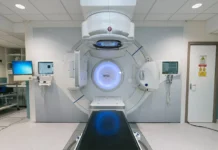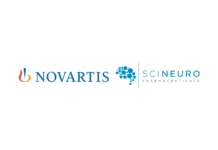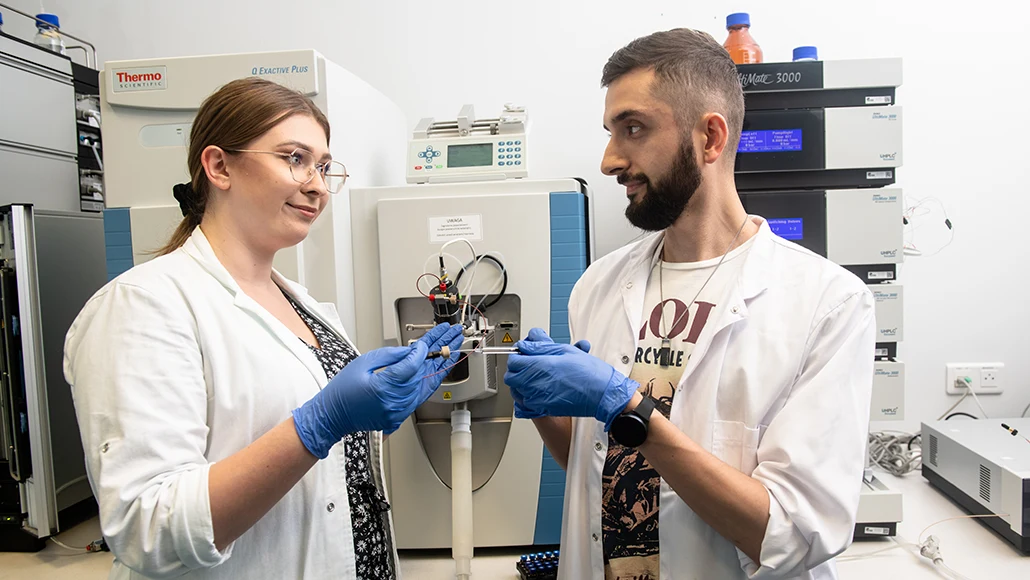Outsourcing is now critical for biotech companies aiming to accelerate their path from discovery to commercialization. Selecting the right contract development and manufacturing (CDMO) partner can influence every aspect of biologics development and manufacturing, from project speed and cost efficiency to regulatory success and long-term scalability.
This blog provides insights into what biotech companies should prioritize when outsourcing, including five key considerations to help ensure a successful partnership.
1. Integrated capabilities under one roof
The biologics landscape is highly competitive, and biotech companies are often under intense pressure to move swiftly and efficiently. One of the most impactful ways an end-to-end CDMO company like Mabion can accelerate timelines is by offering end-to-end capabilities, including development, analytical services and manufacturing, all in-house. An integrated approach allows for seamless tech transfers between departments, faster data turnaround and reduced reliance on external vendors.
The one-stop-shop model means fewer handovers, minimized delays and improved continuity. It also supports parallel processing, such as running upstream processing and analytical development simultaneously, helping projects move at pace without compromising quality.
2. Flexibility and customization
No two molecules are the same, and this means no two outsourcing partnerships should be the same. That’s why flexibility is a cornerstone of effective CDMO partnerships. Platform approaches can act as efficient baselines, but every process should be adapted to the specific needs of the molecule and the wider company goals.
At Mabion, this adaptability is reflected in the use of two distinct bioreactor technologies: stirred tank reactors and orbitally shaken reactors. This dual setup enables a tailored approach to upstream processing, allowing the selection of the most suitable technology for the specific biological and process requirements of each project.
This adaptability extends beyond technical protocols and equipment. Modular services allow biotechs to engage with specific tasks, such as method development or working cell bank preparation, before expanding the scope of collaboration. This tailored engagement model can help biotech-CDMO relationships evolve from initial service contracts into strategic partnerships that deliver long-term value.
3. Transparent, two-way communication
Many biotech companies express frustration with poor communication and delayed data from CDMO partners. These frustrations can be mitigated through a dedicated project management model, with each project assigned a single point of contact alongside regular technical meetings between the CDMO’s scientific team and the biotech.
Two-way communication emphasizes transparency from the start, with clearly defined operational frameworks and early alignment on expectations, documentation and agreements. This helps avoid delays in project kick-off and ensures smoother execution throughout the development lifecycle.
4. Scalability with technical continuity
As biotech companies scale from lab to GMP manufacturing, tech transfers can often create bottlenecks. An effective solution to this problem is to use identical equipment across lab and production scales. At Mabion, this principle is implemented with a structured scaling approach: development typically begins at the 10 L scale in R&D, followed by sequential scale-up through 50 L, 200 L and ultimately to 2000 L bioreactors in the manufacturing zone. This continuity of equipment and processes ensures smoother transitions and maintains product integrity at every stage.
Additionally, by involving manufacturing and quality personnel early in R&D, scalability is built into the development and manufacturing processes from the start. Understanding the molecule at a deep scientific level is also key. Investing time upfront to analyze the structure, mechanisms of action and risk factors enables better process design and de-risks scale-up activities. Technologies like software-driven bioreactor simulations and Quality by Design (QbD) frameworks further streamline tech transfers and scalability.
5. Regulatory foresight and quality assurance
Navigating regulatory requirements is one of the most challenging tasks for emerging biotechs. CDMOs can help here by offering built-in regulatory support from day one. Dedicated quality and regulatory teams can stay current with global guidelines and tailor compliance strategies based on the project’s development phase, avoiding unnecessary over-engineering for early-phase trials while ensuring a clear path to commercialization.
Integrating R&D within quality management systems and using electronic documentation tools also helps ensure traceability, data integrity and readiness for regulatory inspections, even during early development stages.
Mabion: The mid-size CDMO advantage
For emerging biotechs, mid-sized CDMOs offer significant advantages over larger organizations. Mabion’s scale allows it to provide focused attention, faster responsiveness and greater adaptability. With Mabion, your projects don’t get lost. Instead, they’re championed by cross-functional teams invested in your success. This collaborative mindset transforms the relationship from transactional to truly strategic.
Biotechs entering CDMO partnerships must think beyond technical capabilities. The right partner should offer strategic insight, operational flexibility and a commitment to quality and communication. Mabion exemplifies these attributes, offering biotech innovators more than just a service provider, but a partner dedicated to accelerating their biologics from discovery to commercialization.




















